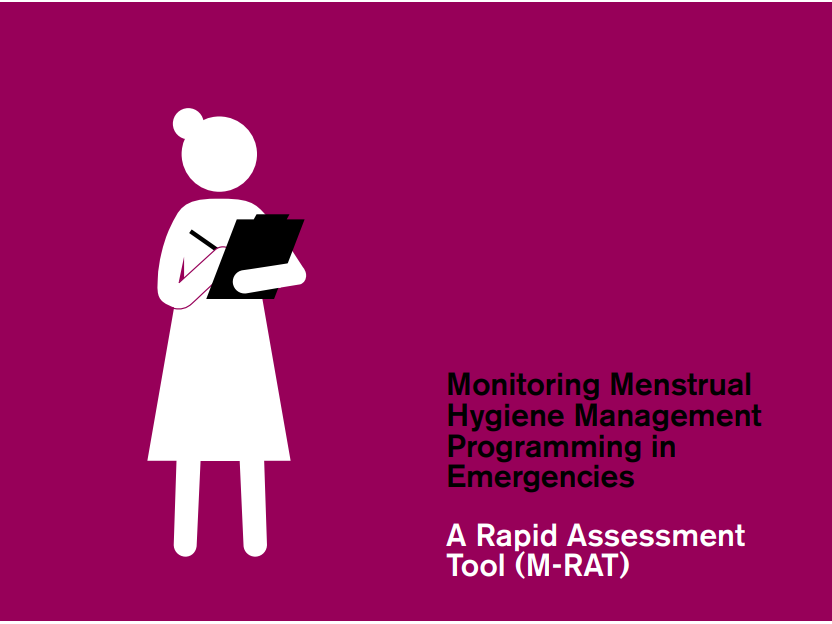M-RAT: Monitoring Menstrual Hygiene Management Programming in Emergencies
About M-RAT
This Menstrual Hygiene Management (MHM) Rapid Assessment Tool (M-RAT) is designed to assist the humanitarian community in evaluating the status and reach of MHM programming within an ongoing humanitarian emergency.
Optimally, it may be used by a small team of two or three people, over the course of 3 – 5 working days (more days may be necessary for
a complex emergency). It can also be used as a self-assessment or diagnostic tool for agencies or organizations responding to the emergency, or by the cluster and coordination mechanisms.
The M-RAT can be used in a range of settings, including camps, informal settlements, urban displacement or host communities.
This tool is not intended to be used for Initial Rapid Assessment – for designing these, we suggest referring to Chapter 6 of the MHM In Emergencies toolkit. The M-RAT is recommended for use once WASH and other services are already underway, in order to consider what is in place, and what gaps are most critical. It should be used as early in the response as possible, to allow maximum opportunity for course-changes.
The tool is intended to be forward-looking, focused on identifying areas for future MHM program improvement, rather than critiquing current
practices. It can be used periodically, to track progress as the response matures, and to prompt course-changes where appropriate.
Scope
The M-RAT is based upon the content of the MHM in Emergencies toolkit, and aims to evaluate:
- Access to Materials & Supplies
- Access to Supportive Facilities
- Access to Information
The full spectrum of women’s and girls’ daily lives should be considered, including their experiences in:
- Households – sleeping accommodations, washing spaces, locations for changing materials and living arrangements;
- Household and residential toilets and washrooms
- Schools, clinics, safe spaces and other public facilities;
- Public spaces such as markets, distribution sites and work spaces.
The MHM Rapid Assessment Tool was created by the International Rescue Committee and Columbia University, financed through the United States Agency for International Development (USAID).
You can access the M-RAT here.
